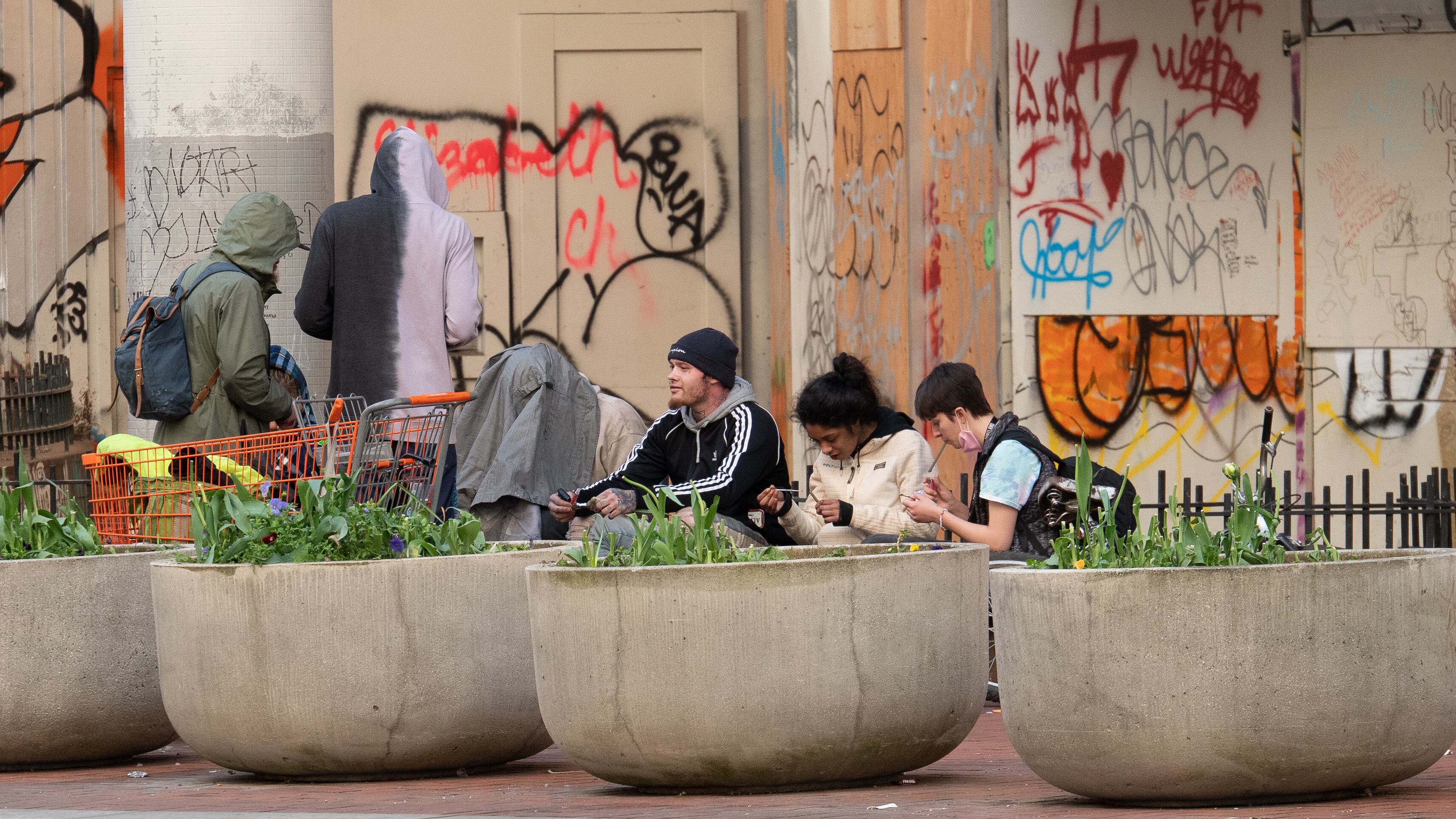Portlanders can be forgiven for not realizing that hard drugs remain illegal in Oregon, despite the passage of Measure 110. People caught with small amounts of meth or cocaine are supposed to be issued citations—and the recipient then chooses between a $100 fine or calling a number for addiction treatment. If that detail remains hazy, it’s because Portland police have issued only about 500 citations for possession since the new law went into effect.
That is, until last week.
On Monday, May 8, cops handed out 43 citations—a record number, according to a list of citations obtained by WW from the Multnomah County Circuit Court. On Tuesday, May 9, police broke their record again with 63.
The Portland Police Bureau’s bike squad, which patrols downtown, made a decision to start making use of the underused tickets. “Alongside paramedics and firefighters, those officers are on the front lines of this crisis,” PPB spokesman Kevin Allen tells WW. “They’re directly seeing all the overdoses and violent crime associated with abuse of street drugs, and we’ve heard from the community that they want to see us try to address open drug use.”
It comes at a crucial time. Fentanyl overdoses are sweeping Portland. Statewide, opioid overdoses tripled between 2019 and 2021, and the situation appears to be getting more dire. The Police Bureau warned Portlanders on Sunday about a “potentially dangerous batch of drugs circulating the street marketplace.” Police are now investigating a string of eight fatal overdoses that occurred last weekend, some involving fentanyl that users thought was cocaine.
But it’s unclear if more citations will result in fewer deaths. That’s because the citations are pushing few people into treatment.
When Portland cops hand out a citation, they pass along a card with a phone number for Lines for Life, 503-575-3769. The hotline is staffed by people who have gone through recovery themselves, and they provide both referrals to treatment and a mailed letter that callers can bring to court to waive the $100 fine.
The process takes from about 15 minutes to an hour. But only 32 people in Multnomah County have done it, according to data from Lines for Life.
Of those, only five have actually submitted the required paperwork to get their fines waived, according to Multnomah County Circuit Court data obtained by WW. That’s a success rate of around 1%.
As of Friday, only 10 people had paid the fine. A few dozen had their cases dismissed. For the rest, their cases are eventually sent to collections.
Law enforcement’s lack of interest in writing citations has long been a target of criticism. A state audit released earlier this year highlighted “variability” across jurisdictions in officers’ enthusiasm for writing citations and encouraging people to call the hotline. (Cops in tiny Josephine County have handed out twice as many citations as those in Multnomah.)
State Rep. Rob Nosse (D-Portland) says he’s happy the city’s cops are now embracing the system, and he hopes it will inform legislative efforts to fix some of Measure 110′s weaknesses. “If no local governments are enforcing it,” he says, “we won’t get any good information.”
Tera Hurst, executive director of the Oregon Health Justice Recovery Alliance, which advocates for Measure 110, emphasizes that the system is a work in progress. She points to a recent report from the Oregon Health Authority showing that programs funded by the measure have already helped over 60,000 people. Still, she says she’s pushing legislators to create a workgroup to address issues in the citation system, such as the lack of law enforcement training on how to use it and the fact that the hotline number isn’t simply printed on the citation.
“We didn’t have something that worked before,” Hurst says, referring to the criminalization of drug use. “Now we’re trying to figure out what will.”
What isn’t working was obvious on a visit to downtown Portland on a recent Sunday.
“No one wants treatment,” said a member of a group clutching tooters and passing around tinfoil under an eave along Southwest Harvey Milk Street near 5th Avenue (an area “rife with drug use and sales,” PPB says). “Out here it’s easier to get drugs than it is to get food.”
But another man under that eave, 22-year-old Hunter Vera, told WW a different story.
He’s been on the streets and in and out of drug treatment since a weed habit took a turn for the worse a few years back. Last week, he received his first citation. “I had no idea it was illegal,” he said.
When asked if he’d called the hotline on the card handed to him by a cop, he looked confused. “Nobody has phones,” Vera said. “How are you supposed to call?”
He said he’d just come back from the detox center after being turned away because of a lack of beds. “I don’t want to do this shit,” he said. “I want to stop, but I physically can’t.”

